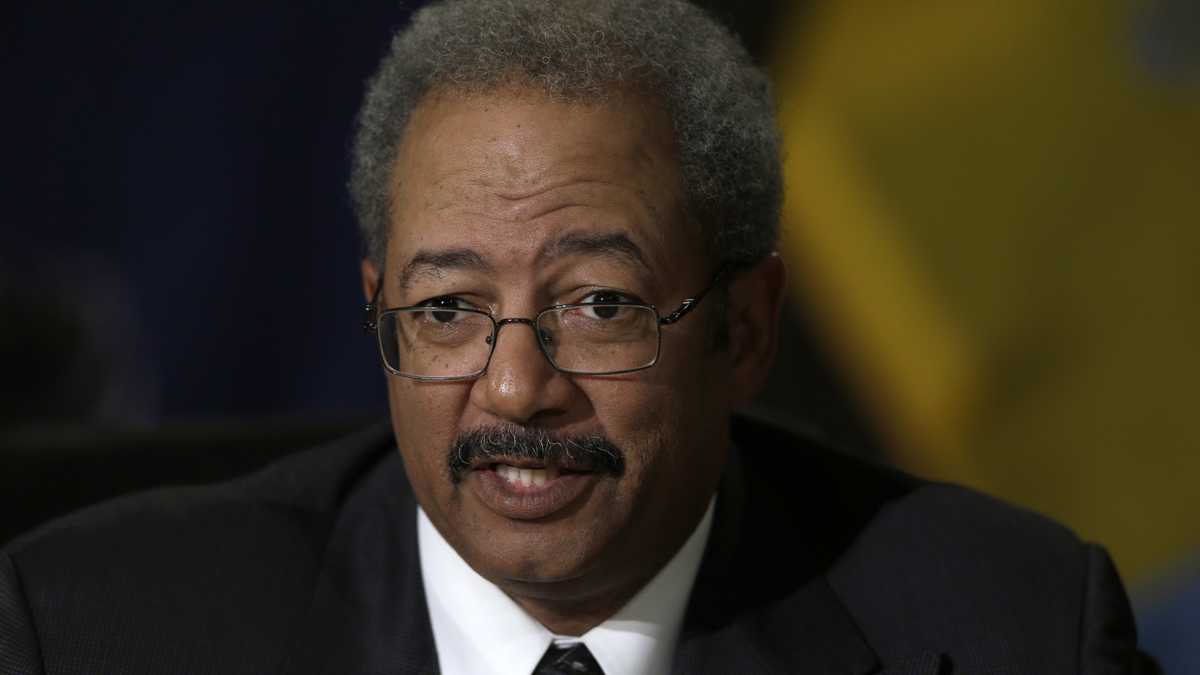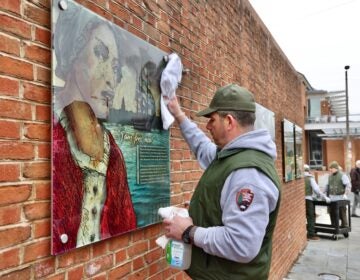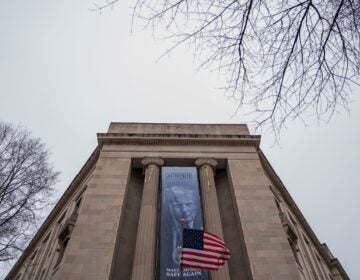Fattah accountant trying to cast doubt on charges
Listen
Rep. Chaka Fattah, D-Pa. (Matt Rourke/AP Photo)
Three weeks after federal prosecutors first accused U.S. Rep. Chaka Fattah, D-Philadelphia, of racketeering conspiracy and bribery charges and on the eve of his first court appearance, Fattah’s allies are attempting to highlight a flaw in one small part of the 85-page indictment.
Their criticism sheds virtually no new light on the case, but it does demonstrate how far Fattah’s associates are willing to go in waging a public relations campaign as the 11-term Democrat heads to court on Tuesday.
“The theme here would be, ‘the government screwed up, the government wasn’t careful, the government was sloppy and this is just the beginning,'” said attorney Rich Scheff, a former federal prosecutor who has no connection to the Fattah case. “They could plant this in the middle of the coverage to start getting what they believe is more balanced coverage.”
But this may turn out to be a foolish move, Scheff said.
“This isn’t a knock-out punch,” he said.
Some associates of Fattah’s and at least one person working on his legal defense admit that it’s a marginal attack on the 29-count indictment. But they insist that it might precipitate larger questions that could undermine more meaningful aspects of the case.
One of the charges in the indictment alleges that Fattah used campaign money to pay for “personal expenses for Fattah and his spouse,” one of ten descriptive allegations that support the corrupt enterprise charge.
The proof prosecutors cite are three transactions from Fattah’s campaign account that were applied to an insurance policy that included a 1989 Porsche Carrera. But the policy included three cars. One of them was listed as a campaign car.
Fattah’s legal team asserts that the payments from his campaign account only paid for insurance for the campaign car, not the two others including the Porsche.
Accountant Harris Devor, who is being paid by the Fattah legal team as an expert, said in an interview that the campaign car represented 50 percent of the cost of the 3-car policy.
“You can see that the payments from the campaign are not greater than 51 percent of the annual premium on that year,” Devor said.
“They didn’t pay one dime more than that allocable to the campaign car,” Devor said.
“Anything that got paid therefore for the personal vehicles, including his Porsche and Chaka’s own car, had to be paid from him personally, and we see from his bank statements that he did pay those things personally,” Devor said. “That’s the piece of the story that’s missing when they say this.”
Earlier this month, Fattah told WHYY’s Dave Davies that his legal team would eventually reveal how they thought the payments cited the Feds were misleading.
Devor argues that federal prosecutors never cross-checked the payment numbers with the insurance companies to verify what portion of the bill was paying for a campaign vehicle and what slice was going toward the two personal cars.
A Department of Justice spokesman declined to comment on Devor’s analysis.
“With respect to these premium payments, there was implied wrongdoing and [they] implied that the campaign was paying for Chaka’s automobiles, when in fact that wasn’t true,” Devor said.
It’s an argument that does little to undercut the corrupt enterprise charge because it doesn’t touch the meat of the count. Prosecutors allege that Fattah concealed a $1 million loan to support his failed 2007 campaign for mayor; that he stole $600,000 of a federal grant to repay that campaign loan; and that he took a $18,000 bribe from a lobbyist by pretending to sell his wife’s Porsche to the lobbyist. Renee Chenault-Fattah, the congressman’s wife and veteran NBC10 anchor, is accused of faking the sale of the car.
Prosecutors say the Fattahs used that money to close on a vacation house in the Poconos, but the car never left their possession. FBI agents found the car in the Fattah’s garage more than two years after they said it was sold.
Friends of Fattah did not present evidence to dispute the fraudulent sale of the Porsche. But Chenault-Fattah has said it wasn’t a sham sale, contending that a “family friend” bought it but had no room for it. Eight months after the supposed sale, the TV anchor was spotted by the Daily News pumping the car with gas in Germantown.
Attorney Lanny Davis, Fattah’s former lawyer who helped defend President Bill Clinton when Congress was trying to impeach him over his relationship with Monica Lewinsky, said the issue raised by Devor could lead to other questions with the indictment.
“I am confident that the charges brought against Congressman Fattah are baseless and that he will be acquitted, or the charged with be dismissed,” Davis said.
Other legal observers viewed it as a distraction managed through public relations.
“This might be the first volley by the defense, and then if there’s a future story where they question other evidence, all of a sudden there’s a groundswell of people questioning whether the prosecution is well-founded,” said defense attorney and former prosecutor Bob Goldman.
“Frankly, though, If I thought it was good evidence, I would be holding it, not broadcasting it through the media.”
WHYY is your source for fact-based, in-depth journalism and information. As a nonprofit organization, we rely on financial support from readers like you. Please give today.




